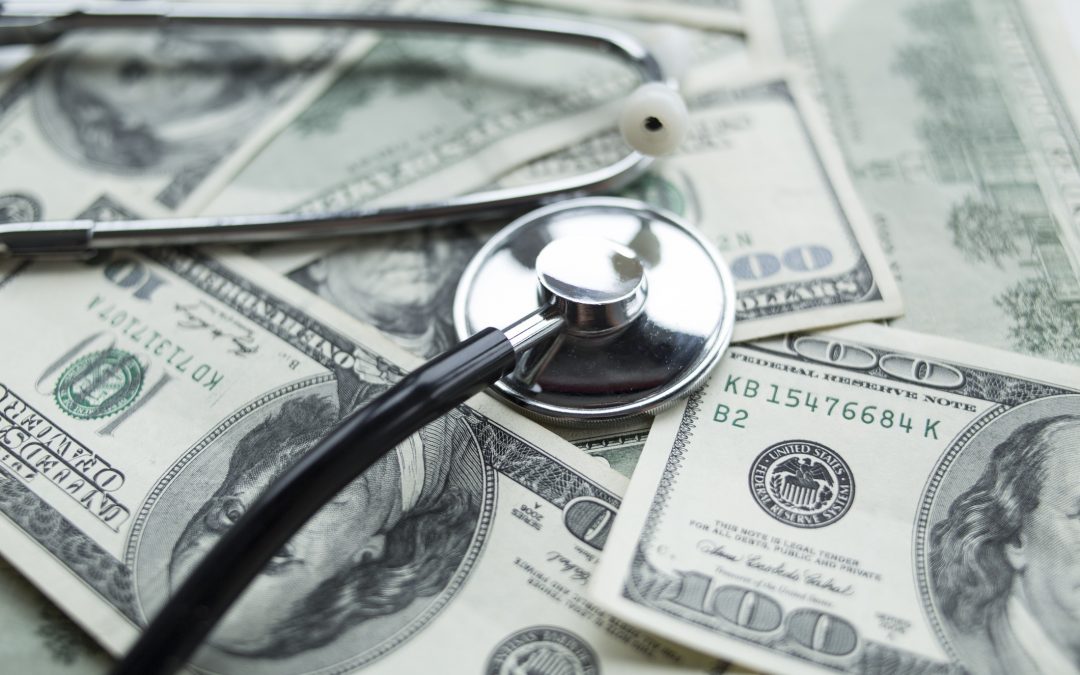I had not been prepared for cancer or its financial or emotional cost. I don’t think anyone can be.
There are challenges you just can’t anticipate. I wrote about some, venting in a post on my CaringBridge site, in February 2017.
“When you hear of someone fighting cancer, know that it’s a battle fought on many fronts,” I wrote, “and that cancer is just one enemy.”
The others? My insurance company, which I could’ve predicted. And the billing offices at each of my doctors’ offices, which I didn’t see coming.
When you’re treated for cancer, you’re automatically entered into the byzantine, crazy-making bureaucracy that is the American health-care system. About 75 percent of Americans are saddled with medical bills, and for many, a health crisis causes a major financial crisis as well.
If you’re insured, sometimes it’s difficult to negotiate even the smallest detail with a company that must approve every aspect of your treatment in advance.
For instance, mouthwash.
I developed painful mouth and throat sores from chemotherapy, and I needed an industrial-strength mouthwash. My insurance carrier denied it.
I spent the better part of a day trying to convince them it wasn’t fresh breath I was after. I escalated my complaint all the way to the CEO’s office before they agreed to cover it.
Don’t get me started about the day I wasted trying to convince someone at my insurance company to care. But during cancer treatment, I learned a few things that might be useful to others heading down the bumpy road.

Ask about a patient navigator
Do this immediately after your diagnosis. I didn’t know I’d have a patient navigator until I showed up at the infusion center for chemo.
I’d already had surgery, been to one appointment for scans, another appointment with an oncologist and yet another to have a chemo catheter inserted. Yet no one at any of those meetings mentioned a navigator.
I cried when my navigator, an R.N. who specializes in gastrointestinal cancers, introduced herself while I was being hooked up to a bag of chemo.
She told me her job was to answer medical and financial questions. Fabulous! I had plenty. Later, when I told her about the mouthwash drama, she said she would’ve done the dirty work for me. Don’t be a martyr if you don’t have to be.
Take deep breaths
At one of my appointments, a doctor said, “I don’t think you’ve taken a really intentional breath the whole time you’ve been in my office.” And then she taught me the 4-7-8 breath, also known as the “relaxing breath.”
She, and several cancer survivors, told me throughout treatment: Everything feels out of control now, and there is a lot that’s beyond your control. But you can always calm yourself through your breath. And unlike everything else associated with cancer treatment, there’s no cost.
I needed to be reminded to breathe: That’s how stressed I was. Do what you can to become calm and centered. Think of it as preparation for battle.
Document everything
My radiation oncologist’s office sent a letter before my treatment began warning me that I’d get one bill from them for services rendered and a separate bill from the hospital for the equipment. Even though all my doctors were part of the same network, they all billed separately for their services.
Ultimately, I would get bills from oncology, radiology, my surgeon’s office, anesthesiologists and a few other random practitioners I never met but who, apparently, had a hand in my care.
The bills generally contained only the date of service and a lump sum owed. It’s up to the patient to ask for itemization. Always ask.
In researching the services that went into the vague total, hospital staff may find they overbilled you. Because I kept careful notes, I knew I’d been overcharged on my final bill by $526.01.
Get the time you need
Ask the hospital rep not to start the clock for payment until you’ve received an itemized bill. Some of the invoices I got requested payment within 10 days. My 10 days didn’t start, I contended, until I’d verified the bill in question was correct.
(Don’t get me started on incorrect billing codes, which seem to be common practice in health care and health insurance.)
Be a squeaky wheel
Did I get on the nerves of the hospital’s finance department? You betcha! But I wasn’t competing for Miss Congeniality in the Miss Cancer Pageant.
Several months post-treatment, I had still received just two or three bills. I knew there were many more to come. I contacted the hospital’s oncology financial counselor and asked if she could expedite the process. I’d just sold my condo (to afford a 60 percent increase in my insurance premiums – totally unrelated to cancer) and had cash on hand.
She said — and I’m not making this up — “The bills come when they come; I can’t make them come any faster.”
Wow. Try telling your hospital billing office that your payment will come when it comes, and see how fast you’re turned over to a collection agency.
I ultimately complained my way to being assigned my very own personal guy in finance. I called him to say, “I can’t put cancer in the rearview mirror until I’ve paid for treatment. I shouldn’t have to beg you to bill me. Can you help?”
He did.
Understand the big picture
Or try to, anyway. I was paying my insurance company close to $700 a month in premiums. In 2017, I had a $7,150 deductible. So, I paid close to $15,550 out of pocket on health care costs the year I had cancer.
Once I met my deductible — which I hit in January! — my insurance started to cover the rest of treatment. But even then, it wasn’t easy.
I had received only one bill. I still needed to be vigilant in ensuring I wasn’t being overcharged.
When you consider you’ll be paying for each doctor’s visit, clinic visits, lab tests, imaging tests (CT scans and MRIs are budget busters!), drugs, maybe rehab — and that maybe you’ll also have transportation and lodging costs — you begin to see how cancer can bankrupt even people with adequate savings.
Figure out how you’ll pay
There’s no price list for cancer care. No one will be able to give you even an estimate.
You might need to consider scenarios you’d never fathomed before, like going to your county social services office to apply for aid. This may be imperative if you’re going to be out of work for a time.
(I was lucky. I tolerated my brief course of treatment well and never had to miss work. That was a blessing since I’m self-employed.)
Paying your medical bills might even involve a GoFundMe or other crowdsourcing campaign.
Buckle up for the long haul
Just because you’re paid in full — or on a realistic payment plan — don’t assume that’s the end of it.
Months after I paid, in one lump sum, everything I owed the health-care system, someone with the manufacturer of my chemo pump called. She said her company hadn’t been paid by the hospital yet. I told her I was paid in full and that she’d have to continue to shake down the hospital.
I called “my guy” in finance, who apologized that someone had given out my number (I know, right?) and said he’d deal with it.
Feel the love
Cancer is expensive. But my cancer came with unexpected blessings, too. I’ve never felt more loved than I did during my illness. People asked, daily, what they could do to help. One dear friend even asked if she could take on the work of dealing with all those billing offices.
Lean on the people who love you. Cancer is a battle, and it’s best to fight it with an army.





Page is a dear friend of mine, and I’m so happy she shared all this information! I’m a two time cancer survivor. It happened during the 90’s, when healthcare was easier to navigate. I had good insurance, but it was still terrifying. People need this information.
I hope everyone will print this & keep it in a file. This is the best information ever, covering all the aspects of cancer treatment. Page is a remarkable writer & a remarkable person.